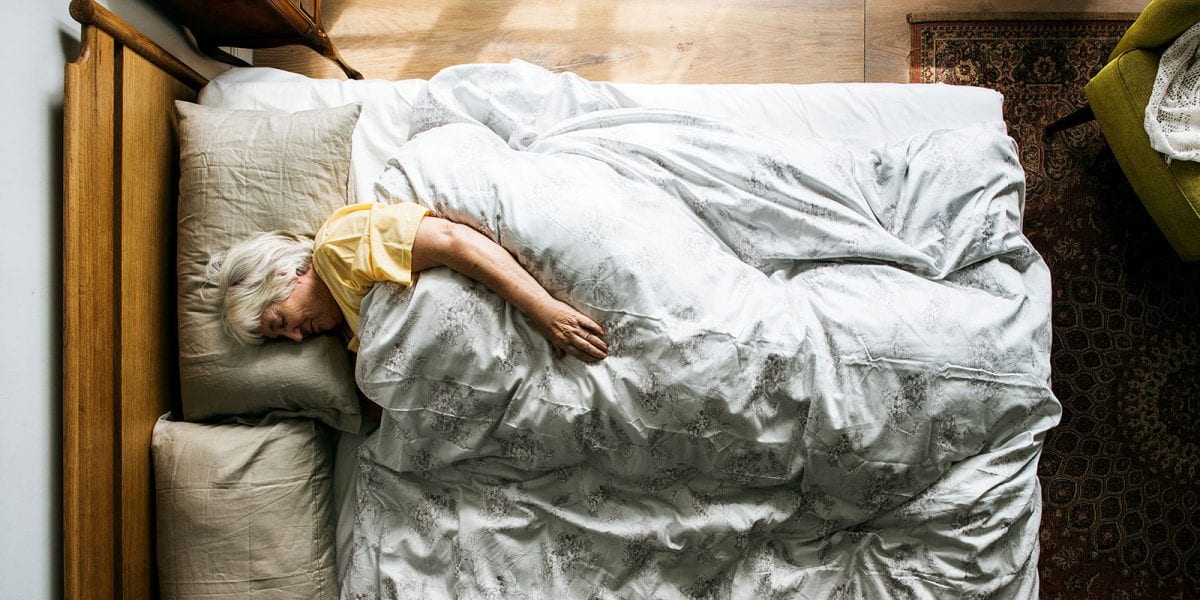The quality of your sleep can be affected by aging. You might find yourself getting up more often and being less consistent with your sleep pattern compared to when you were younger. Below are some of the things you can do to deal with these sleep quality issues.
You might find yourself waking up many times during the night, and you might be asking yourself if that is part of aging or if there is something wrong.
Don’t worry because it is not something to cause alarm. A common sleep change people notice when they start aging is waking up more frequently. The likely culprit is physical discomfort such as repositioning an achy joint or the need to use the bathroom.
The good thing is the older folks can fall back asleep as fast as young people do. Most of the changes due to age happen before the age of 60, and this includes times it takes for someone to fall asleep, which is not going to change later in life.
There are changes you will notice with aging, and some of them include sleeping for less time and spending less time on the REM cycle – this is the rapid eye movement cycle where dreaming takes place. The changes vary from one person to another, and they tend to affect men more compared to women.
Getting older does not mean having to deal with poor quality sleep for life. You cannot change anything on your natural rhythms and tendencies that have shifted as a result of aging, but there are some things you can do to limit disruptions and improve the quality of sleep.
Below are some tips that can help:
There are some medications and supplements that can have an effect on your sleep, which is why you should review them with your doctor so you can change any of them that could be affecting your sleep.
Get better sleep with essential oils, certain smells like lavender, geranium and chamomile are renowned for their relaxing scents.
Avoid drinking fluids two hours before bed so you don’t have to get up to go to the bathroom
If pain is making it hard for you to sleep, then talk to your doctor to determine whether pain medication can help. While using pain medication might not prevent waking up, it will make it easier for you to fall back asleep. Ensure your medical bills are covered with Medicare Advantage Plans 2021.
Keeping the sleep environment dark. You should try making it as dark as possible. Limit the lights from the TV, mobile devices, and computer screen. Light has been shown to cause disruption to the natural sleep rhythm of the body.
Avoid caffeine at least eight hours before bedtime.
Avoid alcohol. Many people think alcohol is good because it makes them fall asleep, but it will negatively affect your sleep when it starts wearing off.
You should limit your naps to no more than 20 minutes if you want to get quality sleep. If napping makes it hard for you to sleep, then avoid it altogether.
If you find yourself having a hard time sleeping, taking 1 to 2 milligrams of melatonin two hours before bedtime is going to help (choose sustained-release tablets).
You should try getting 7-8 hours of sleep every night. If you take the above steps but still have poor quality sleeps, then the best thing to do is talking to your doctor.
Avoid beverages (this includes alcohol) two hours before sleep so you don’t have to wake up to go to the bathroom.
Nap midafternoon and limit it to 20 minutes then see whether you feel better.
Ease on pains and aches that could affect your sleep by stretching in the morning and before going to bed.








